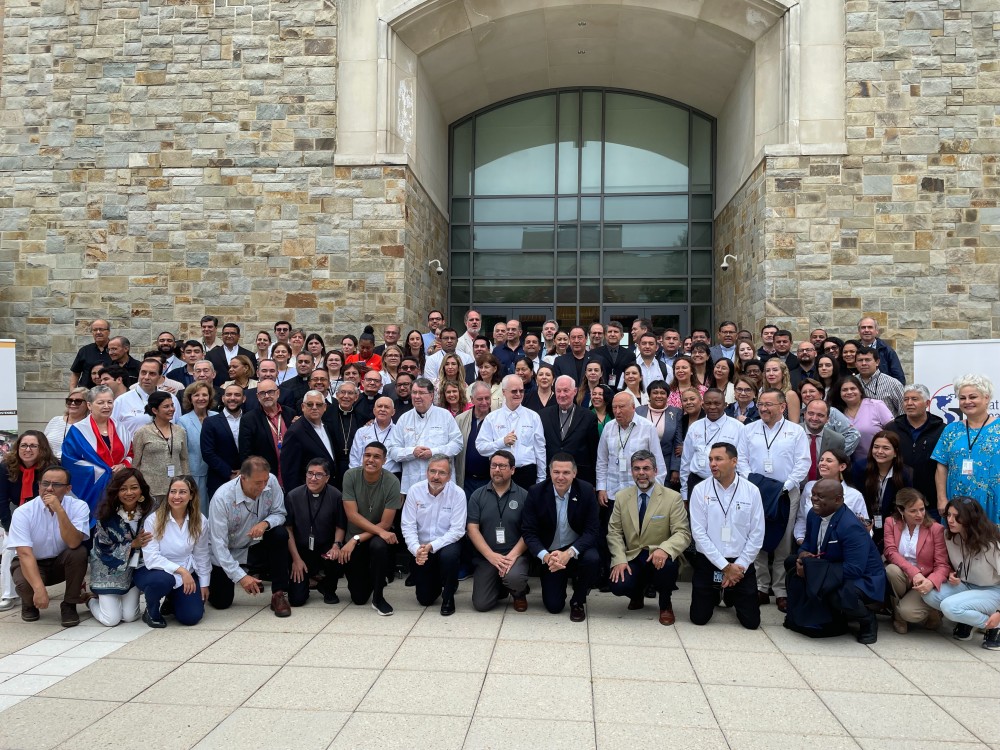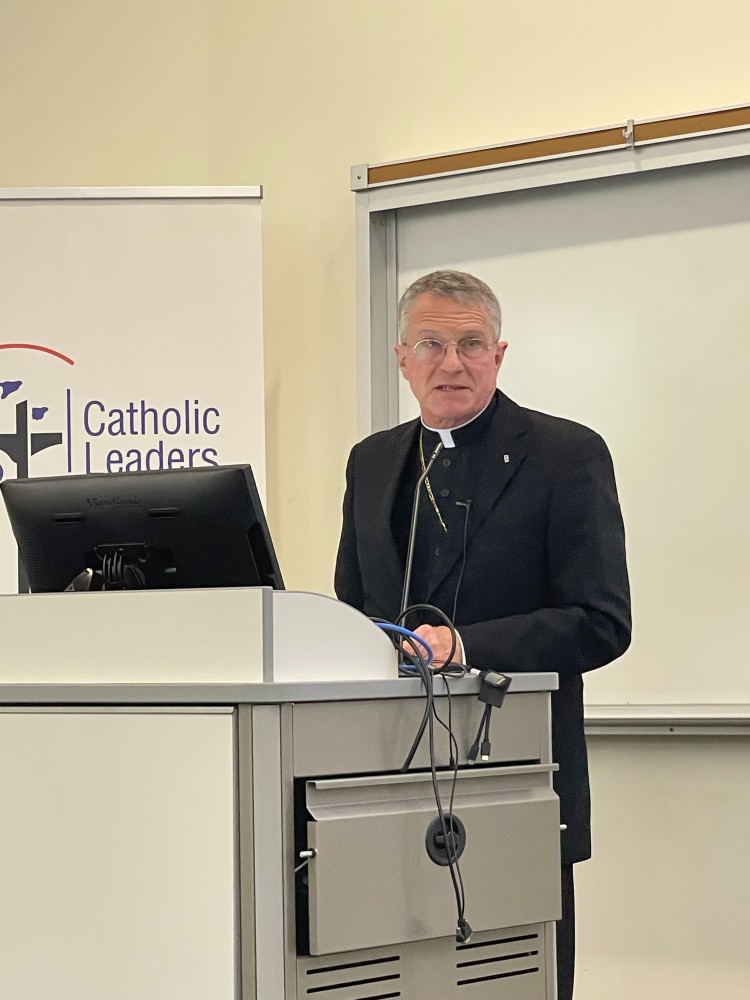
JAMAICA — The Diocese of Brooklyn, known as the Diocese of Immigrants for the many nationalities attending Mass in its churches, took on even more of an international flavor when four cardinals from different parts of the world came to St. John’s University for a summit designed to train lay Catholics to become leaders and work for societal changes.
Cardinal Christophe Pierre, the apostolic nuncio to the U.S.; Cardinal Odilo Scherer of Sao Paulo, Brazil; Cardinal Marc Ouellet of Quebec; and Cardinal Diego Padrón, of Valencia, Venezuela, celebrated Masses, offered lectures, and met with participants in the summit, called the International Diploma of Social Doctrine of the Church.
Auxiliary Bishop Emeritus Octavio Cisneros, who was instrumental in bringing the summit to the diocese, called it “a wonderful opportunity for our leaders, our Catholic leaders, to become even more committed to the work that the Church does with the poor, in the political arena, in the business arena, and in other ways.”
The Social Doctrine of the Church, published by the Pontifical Council for Peace and Justice in 2004 during St. John Paul II’s papacy, focuses on topics such as human rights, the rights of workers, and relations in the international community.
Cardinal Pierre was impressed and inspired by the people he met at the summit, which takes place annually. “I see a real commitment from them to work for positive changes. It is important to do so,” he said.
More than 150 people from 14 countries — primarily Spanish-speaking nations — took part in the nine-day summit, which ran July 19-27 at the university and was organized by the International Academy of Catholic Leaders with support from SOMOS Community Care, which is a social care network of over 2,500 independent providers responsible for reaching and delivering care to over 1 million Medicaid lives across New York City.
The summit illustrates the academy’s “commitment to the training of various Catholic leaders and reaffirming our mission in the promotion of the Social Doctrine of the Church,” Jose Antonio Rosas, the general director, said in a statement.

The speakers included Archbishop Timothy Broglio, president of the U.S. Conference of Catholic Bishops.
The summit’s goal was to create new lay leaders of the Church who would then go out into the world and become involved in developing political solutions to societal problems while staying true to their Catholic identity.
People who took part in the leadership summit, which was set up like a mini-college course, earned certificates upon completion. Several people from the diocese took part in the summit.
“It is very intensive. I am learning so much about how the pope wants us to be leaders, said Hilda Terrero, a parishioner of Holy Child Jesus in Richmond Hill, who served as the coordinator for the group from the diocese.
“The presentations have really opened my eyes,” she added.
Another participant, Joann Roa, director of adult faith formation for the diocese, said she is taking the lessons to heart. “Our papal nuncio, Cardinal Christophe Pierre, reminded us that Christ took on our nature, and by doing so, he is always present in the poorest of the poor,” she explained.
She added that Catholics are called upon not to simply give material goods to the poor but to identify with them and walk with them.
Cardinal Scherer enjoyed working with the participants, noting their “eagerness to learn and to take that knowledge back to their communities.”
Bishop Cisneros said the presence of the four cardinals was significant.
“It speaks to the fact that it is Pope Francis who wanted this effort to succeed,” he explained. “And it was through the encouragement and exhortation of Pope Francis, who has given this the impetus that it needs.”
